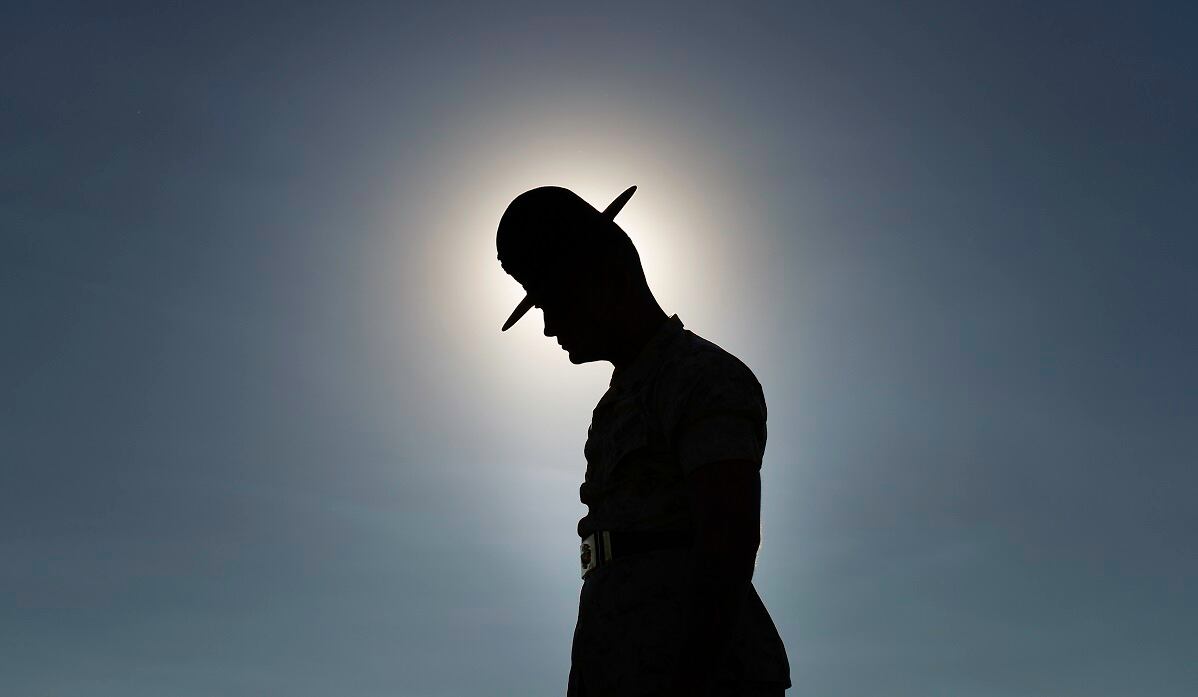A new academic report on efforts to integrate Marine Corps boot camp recommends dropping gender-specific salutations for drill instructors, but service leaders are not convinced they want to take that step.
The lengthy report, commissioned by the Corps from the University of Pittsburgh in 2020 and completed in 2022, points out that half of the military services already have done away with gendered identifiers for training staff.
“The Army, Navy, and Coast Guard effectively de-emphasize gender in an integrated environment,” the report states. “Instead of saying ‘ma’am’ or ‘sir,’ recruits in these Services refer to their drill instructors using their ranks or roles followed by their last names. Gendered identifiers prime recruits to think about or visually search for a drill instructor’s gender first, before their rank or role.”
The proposal was under consideration by a Marine Corps leadership team assembled to guide service efforts to integrate boot camp, Col. Howard Hall, chief of staff for Marine Corps Training and Education Command, told the Defense Advisory Committee on Women in the Services in December.
But, he said, leaders had concerns.
“That’s going to take some effort,” Hall told the committee during its quarterly public meeting Dec. 6 in Arlington, Virginia. “Honestly, that’s not a quick fix. What are inculcating in our young recruits that will or will not be reinforced when they graduate and enter the fleet Marine force? So again, we want to avoid any quick-fix solutions that introduce perturbations down the line.”
RELATED

The University of Pittsburgh report highlights a number of ways ― subtle and not-so-subtle ― that Marine Corps boot camp centers male recruits and makes male Marines the standard. Three of the five sections of service history taught at boot camp contain no explicit mention of female Marines, and “core values” guided discussions exclusively highlight the stories of male Marines and sailors when giving examples of real-world heroism and leadership.
These examples paint a picture of a Marine Corps in transition.
The Corps still has the smallest percentage of female service members, and until 2019 all female recruits were trained in a single battalion at Marine Corps Recruit Depot Parris Island, South Carolina. Women now train at both Marine Corps boot camps, but training materials have been slow to catch up to that reality.
The study found, for example, that PowerPoint slides from Marine Corps Recruit Depot San Diego describing service leadership traits still used all male pronouns: “A leader who is confident in his decisions instills confidence in his Marines.”
Learning sessions about marriage in the military routinely featured images of husbands in uniform and civilian wives, the study found.
Regarding Marine recruits’ treatment of drill instructors, anecdotes suggested female training staff members, even senior ones, were sometimes treated as less important or authoritative than male counterparts. One male drill instructor told interviewers that he saw a female chief drill instructor, who commanded an entire recruit series, standing ignored on the parade deck as other drill instructors asked for advice from a male peer.
The study’s authors suggest that dispensing with “sir” and “ma’am” in favor of the neutral “drill instructor” would help to counteract that behavior.
“Gender-neutral identifiers are an unambiguous, impartial way to circumvent these issues,” the authors write. “Employing gender-neutral identifiers eliminates the possibility of misgendering drill instructors, which can unintentionally offend or cause discord. By teaching recruits to use gender-neutral identifiers for their drill instructors, Services underscore the importance of respecting authoritative figures regardless of gender.”
Hall said the Marine Corps was working to change the training materials highlighted by the University of Pittsburgh study, but expressed concern about making any moves that would put boot camp practices out of step with fleet ones.
“All of a sudden, we change something at recruit training, and recruits start coming in and using a different identifier. It’s not something we would change overnight,” he told Marine Corps Times following the advisory committee meeting. “Again, we’ve got a history of ‘sir, ma’am, sir, ma’am. If we change something at the root level, how do we make the corresponding change at the Fleet Marine Force? So it’s not ours to implement alone.”
The gender identifiers proposal was one of a half-dozen recommendations the Marines’ entry-level training advisory council is now considering. It’s not clear when the service will decide which ones to pursue.
Hope Hodge Seck is an award-winning investigative and enterprise reporter covering the U.S. military and national defense. The former managing editor of Military.com, her work has also appeared in the Washington Post, Politico Magazine, USA Today and Popular Mechanics.




